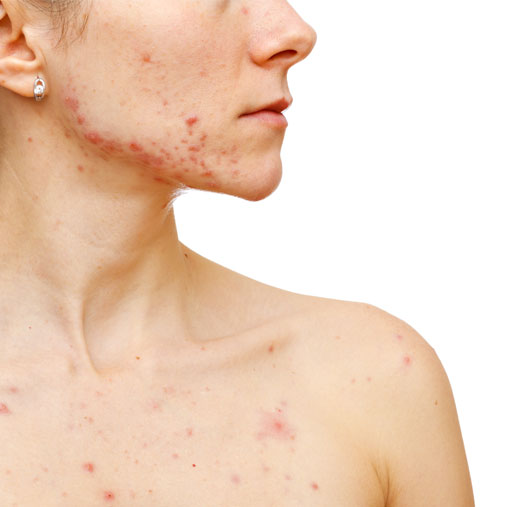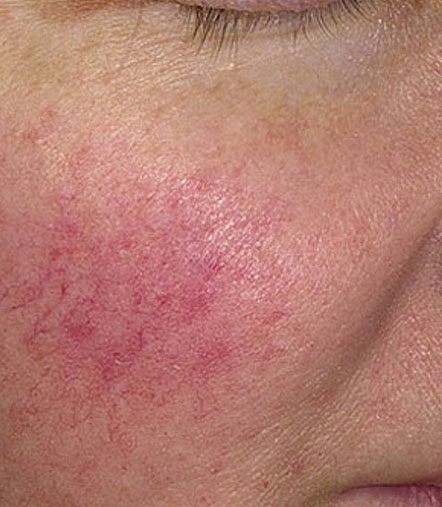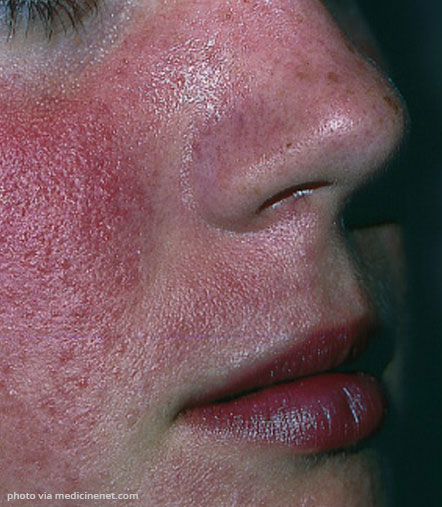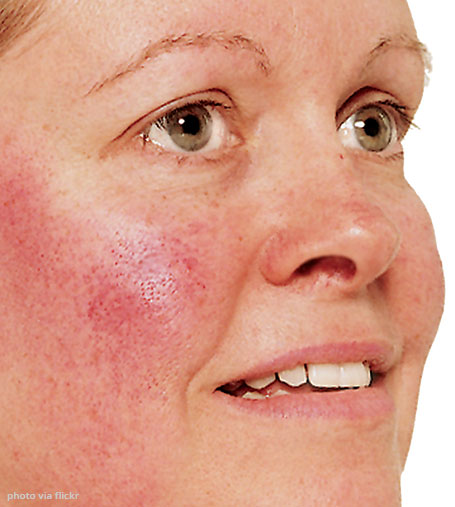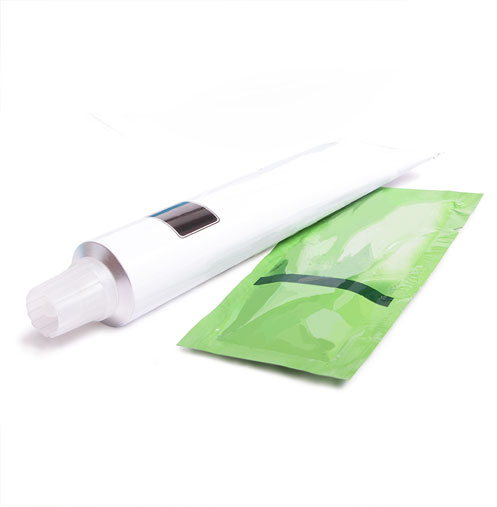Rosacea Treatments for Clearer Skin
Get expert dermatological care to manage redness, flare-ups, and irritation.
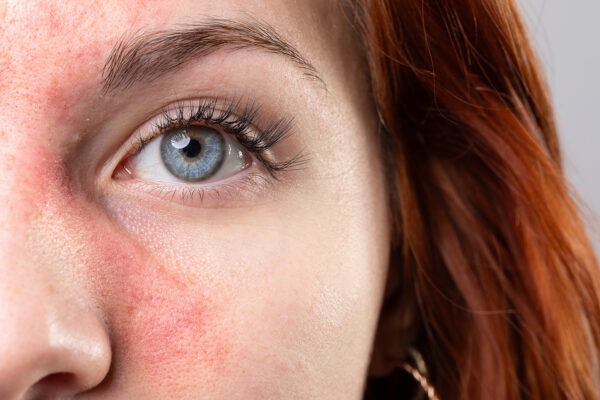 Regain Confidence with Professional Rosacea Treatment
Regain Confidence with Professional Rosacea Treatment
Rosacea is a chronic skin condition that causes facial redness, visible blood vessels, and flare-ups, often across the cheeks, nose, chin, and forehead. While there is no cure, professional dermatological care can substantially reduce symptoms and improve skin health over time.
At Clarus Dermatology, our board-certified dermatologists develop personalized treatment plans tailored to your skin type, symptom severity, and triggers. Our goal is to help you manage flare-ups, calm redness, and prevent the condition from worsening.
Understanding: Causes & Triggers
Rosacea is a long-term skin disorder that primarily affects the central face and varies from person to person. Although the exact cause is unknown, various environmental, dietary, and internal triggers can contribute to flare-ups and worsen symptoms.
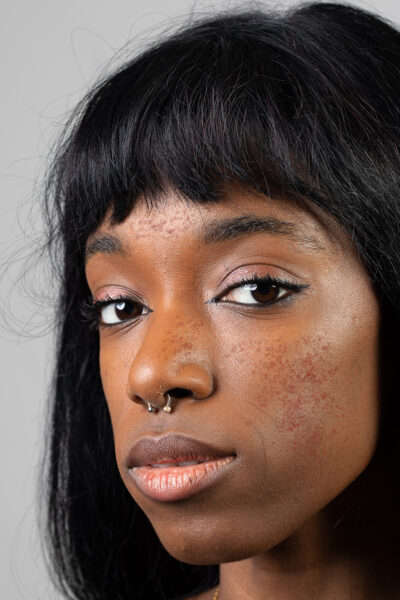 Common Rosacea Triggers
Common Rosacea Triggers
Rosacea is known to flare in response to certain triggers. While those specific triggers can vary based on the person, common ones include:
- Sun exposure
- Spicy foods & alcohol
- Stress & emotional responses
- Hot weather or extreme cold
- Certain skincare products
- Caffeine & hot beverages
Symptoms of Rosacea
Symptoms can vary but typically affect the face, often resembling acne or sunburn. They may include:
- Persistent facial redness, especially on the cheeks and nose
- Visible blood vessels (telangiectasia) on the face
- Bumps & pimples that may resemble acne
- Burning or stinging sensation in affected areas
- Eye irritation (ocular rosacea), including dryness, itching, or burning
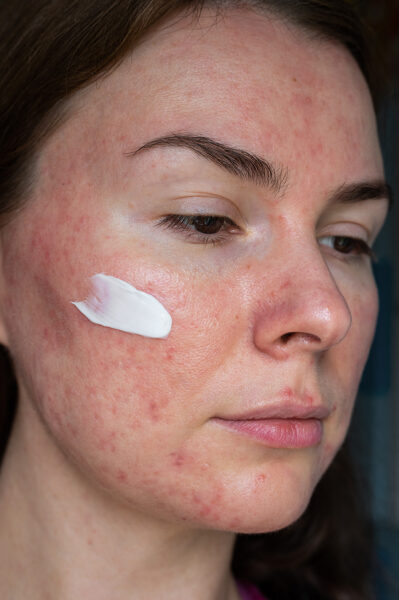 Personalized Rosacea Treatment Options
Personalized Rosacea Treatment Options
Effective rosacea treatment focuses on controlling symptoms, minimizing flare-ups, and calming inflammation. Our dermatology team will recommend a combination of therapies based on your specific type of rosacea and how it presents on your skin.
Topical Medications
Topical treatments are often the first step in managing mild to moderate rosacea. These medications work directly on the skin to reduce redness, inflammation, and bacterial activity.
- Brimonidine (Mirvaso): Constricts blood vessels to reduce visible redness.
- Metronidazole & Azelaic acid: Reduce inflammation and bacterial activity.
- Ivermectin (Soolantra): Targets Demodex mites and reduces inflammation
Oral Medications
For moderate to severe cases or those involving pustules, oral medications may be prescribed to treat inflammation from within.
- Antibiotics (Doxycycline, Minocycline): Help reduce inflammation and pustular flare-ups.
- Low-dose Isotretinoin (Accutane): Used off-label in severe, treatment-resistant rosacea cases.
Laser & Light Therapy
These in-office procedures are especially effective for reducing redness and visible blood vessels that topical or oral treatments may not fully address. They typically require a series of sessions for best results and are tailored to your skin’s needs.
- Intense Pulse Light (IPL): Reduces diffuse redness and broken blood vessels.
- Vascular Laser Therapy: Shrinks visible blood vessels and improves overall skin tone.
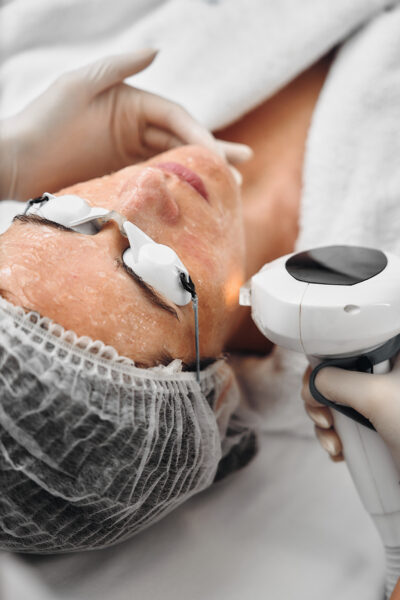 Skincare & Lifestyle Modifications
Skincare & Lifestyle Modifications
In addition to clinical treatments, adopting a gentle skincare routine and identifying lifestyle triggers is a must for long-term control. This can include:
- Use gentle, fragrance-free skincare products to avoid irritation.
- Apply daily broad-spectrum sunscreen (SPF 30+) to protect sensitive skin.
- Adjust your diet to avoid known triggers, such as alcohol and spicy foods.
When to See a Dermatologist
Rosacea isn’t just a cosmetic concern. It can progress and become more difficult to manage without treatment. If you’re noticing changes in your skin or experiencing discomfort, it may be time to seek help. A dermatologist can offer relief and guidance tailored to your needs if you notice:
- Persistent redness that doesn’t respond to over-the-counter remedies.
- Frequent flare-ups that interfere with your daily routine
- Prominent blood vessels that affect your confidence
- Eye irritation, including burning, dryness, or blurred vision
Rosacea Prevention & Long-Term Care
Managing rosacea is a long-term commitment, but with the right strategies, you can minimize flare-ups and keep your skin looking and feeling its best.
- Daily sun protection: Use a mineral-based, broad-spectrum sunscreen (SPF 30+).
- Avoid harsh skincare: Stick to mild cleansers and non-comedogenic moisturizers.
- Know your triggers: Keep a symptom diary to track and avoid flare-up causes.
- Reduce stress: Practice mindfulness, meditation, or other stress-relieving techniques.
Frequently Asked Questions
Yes, rosacea is a chronic condition. However, with the proper strategies, you can manage its symptoms. If you’re dealing with rosacea and are unsure how to manage it, talk to your dermatologist.
While some natural remedies may provide mild relief, clinical treatments are often necessary for long-term control and visible improvement. Strategies like stress control and avoiding triggers can help, too.
Vascular laser therapy and IPL are both effective for reducing redness and visible blood vessels. The best choice depends on your individual skin type and symptoms. Your dermatologist can guide you toward the most effective option.
Without treatment, rosacea can worsen over time. With early diagnosis and consistent care, you can manage the condition and prevent its progression.
Yes, many people find that certain foods and drinks, such as spicy foods, hot beverages, and alcohol, can trigger flare-ups. Avoiding those triggers can help prevent flare-ups.
Take Control of Rosacea with Expert Dermatology Care
If you’re living with persistent redness or recurring flare-ups, you’re not alone, and you don’t have to manage it on your own. Clarus Dermatology is here to help you understand your skin and find relief through evidence-based, personalized care. Let us help you take the next step toward clearer, calmer skin.
Schedule Your Consultation